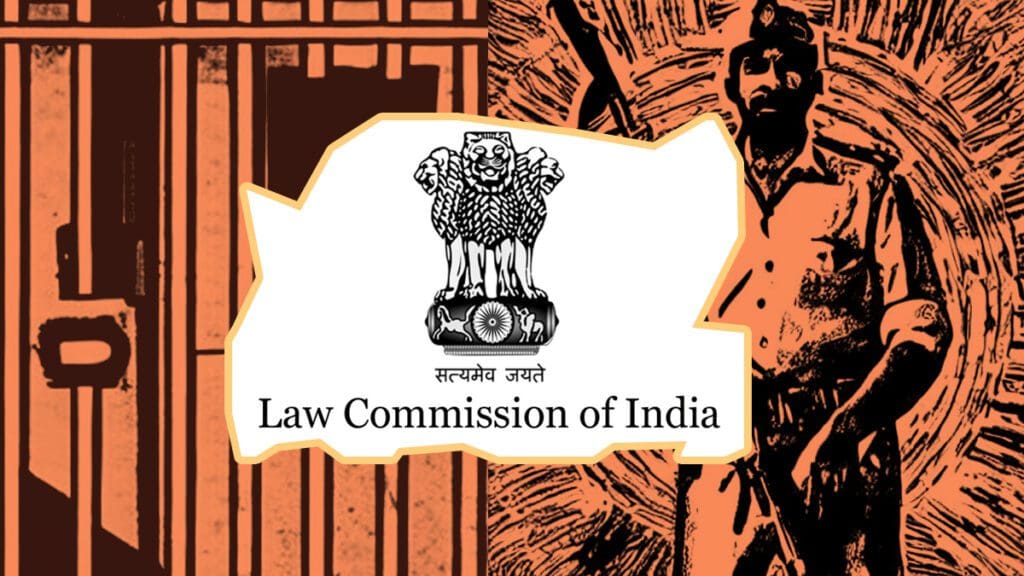
It was only 13 months ago that the Indian Prime Minister asked his government to ‘reconsider and re-examine’ the provisions of Section 124A of the Indian penal code which criminalises the offence of sedition. A couple of days later, the Supreme Court directed the Union government to keep the sedition law under abeyance until the 152-year-old provision was sufficiently re-examined.
In April this year, India’s colonial-era sibling, Pakistan saw its Lahore High Court declare sedition law unconstitutional and strike it down. All these events seemed significant developments as the subcontinent seemed set to free itself from one of the many colonial legacies that it has carried for so long.
However, in a report dated 24 May 2023, India’s Law Commission reversed this young trend, advocating for the retention of Section 124A with some proposed amendments.
Defined by Thomas Macaulay as an act by which ‘whoever, by words, either spoken or written, or by signs, or by visible representation, or otherwise, brings or attempts to bring into hatred or contempt, or excites or attempts to excite disaffection towards the Government established by law in India,’ sedition was included in the Indian Penal Code of 1860 as section 124A.
Throughout its colonial life, it was used to criminalise the writings and speeches of Indian freedom fighters. Some of the well-known violators of the British government’s sedition law were Mahatma Gandhi, Bal Gangadhar Tilak, and Maulana Abdul Kalam Azad. Jawahar Lal Nehru, who later went on to become India’s first Prime Minister was booked for sedition eight times by the British government. Interestingly, the law which was used to suppress the voices for independence in a colonised India was retained when that independence materialised.
Under Section 124A, sedition is a non-bailable offence punishable by imprisonment ranging from three years to life. Law Commission of India in its 42nd report recommended not only the retention of the sedition law but also an increase in the period of imprisonment for the violators. The Commission has recommended that the jail term be increased up to seven years to bring the scheme of punishment in parity with other offences under Chapter VI of IPC. The commission has also advised on making amendments to the law that would help in curbing its misuse. In this regard, they have recommended that the FIR for a sedition case be registered only after a preliminary enquiry by a police officer, not below the rank of Inspector. Furthermore, permission to proceed with the case should be granted by the Central or state government based on the findings of this preliminary inquiry.
Additionally, the Commission suggests including explanations to clarify that expressing disagreement with and criticizing the government’s actions, while pursuing lawful means and refraining from inciting violence, should not be considered sedition. These changes, however, fail to address the fundamental concerns associated with the law.
The law still is in a conflictual relationship with article 19(1)(a) of the Indian constitution as it restricts free speech. It still fails to differentiate between the state and central governments, using the term “government established by law” without providing precise definitions. At a time when state governments seem to be pushing back against the centralising tendencies of the national government, this ambiguity can be a matter of concern. The most pressing worry about the sedition law, spanning from its colonial origins to the present, is its potential abuse to silence and punish political opponents. The uncertainty and ambiguity brought about by terms like ‘otherwise’ and ‘disaffection’ in the original text and ‘tendency to incite violence’ in the recommended addition, still leaves the law open to misinterpretation and by extension, misuse. While it is crucial to note that the government is not obligated to accept the recommendations put forth by the Law Commission, these proposed amendments do suggest a backward shift in the discourse surrounding the abandonment of archaic colonial laws, despite the global movement advocating for their removal.
Moreover, the historical application of the sedition law further intensifies the concerns expressed by those advocating for its repeal. There seems to be a deliberate attempt at maintaining the obscurity around section 124 A as the lines between government and nation are blurred. According to the law, any action that causes disaffection towards the government is deemed seditious and punishable. In a democratic nation like India, where citizens have the legal right to remove a government through elections, it becomes inevitable to hold some level of disaffection towards the incumbent government. Does this imply that voting against the incumbent government amounts to sedition? This question becomes particularly relevant when considering the increased powers and capacities of today’s governments compared to those in 1860 when the Indian Penal Code was first introduced. As Aaron Sorkin’s “Trial of Chicago 7” succinctly phrases it, governments today possess the ability to put individuals on trial for their thoughts.
The fact of the matter is that the sedition law belongs to the colonial era. Apprehensions are that its application remains the same too. Considering the existence of other laws that govern policing and punishment for crimes against the state and humanity, it seems unnecessary for the Law Commission to recommend the continuation of a sedition law with vague interpretations and the potential for draconian application. Furthermore, given the global movement advocating for revoking such laws, there is no compelling reason for the government to accept these recommendations.
Bilal Ahmad Tantray is a PhD scholar from Shiv Nadar University.



